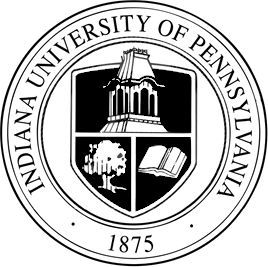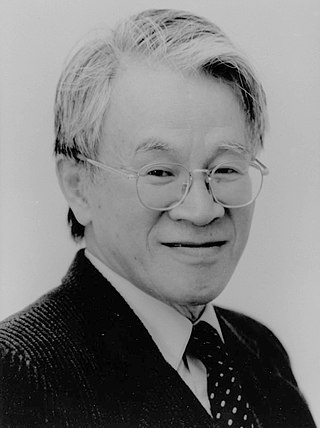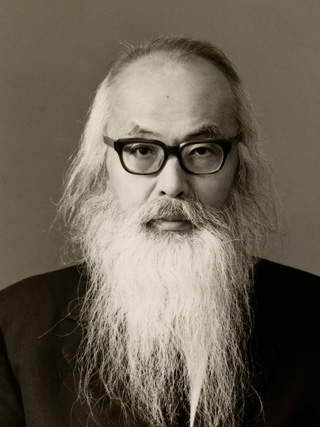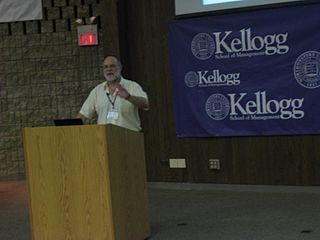In economics, general equilibrium theory attempts to explain the behavior of supply, demand, and prices in a whole economy with several or many interacting markets, by seeking to prove that the interaction of demand and supply will result in an overall general equilibrium. General equilibrium theory contrasts with the theory of partial equilibrium, which analyzes a specific part of an economy while its other factors are held constant. In general equilibrium, constant influences are considered to be noneconomic, or in other words, considered to be beyond the scope of economic analysis. The noneconomic influences may change given changes in the economic factors however, and therefore the prediction accuracy of an equilibrium model may depend on the independence of the economic factors from noneconomic ones.

Marie-Esprit-Léon Walras was a French mathematical economist and Georgist. He formulated the marginal theory of value and pioneered the development of general equilibrium theory. Walras is best known for his book Éléments d'économie politique pure, a work that has contributed greatly to the mathematization of economics through the concept of general equilibrium. The definition of the role of the entrepreneur found in it was also taken up and amplified by Joseph Schumpeter.

Indiana University of Pennsylvania (IUP) is a public research university in Indiana, Pennsylvania. As of 2021, the university enrolled 7,044 undergraduates and 1,865 postgraduates, for a total enrollment of 9,009 students. The university is 55 miles (89 km) northeast of Pittsburgh. It is governed by a local Council of Trustees and the Board of Governors of the Pennsylvania State System of Higher Education. IUP has branch campuses at Punxsutawney, Northpointe, and Monroeville. IUP is accredited by the Middle States Commission on Higher Education.

Michio Morishima was a Japanese heterodox economist and public intellectual who was the Sir John Hicks Professor of Economics at the London School of Economics from 1970 to 1988. He was also professor at Osaka University and member of the British Academy. In 1976 he won the Order of Culture.
Charles Raymond Plott is an American economist. He currently is Edward S. Harkness Professor of Economics and Political Science at the California Institute of Technology, Director, Laboratory for Experimental Economics and Political Science, and a pioneer in the field of experimental economics. His research is focused on the basic principles of process performance and the use of those principles in the design of new, decentralized processes to solve complex problems. Applications are found in mechanisms for allocating complex items such as the markets for pollution permits in Southern California, the FCC auction of licenses for Personal Communication Systems, the auctions for electric power in California, the allocation of landing rights at the major U.S. airports, access of private trains to public railway tracks, access to natural gas pipelines, the allocation of licenses for offshore aquaculture sites, the combinatorial sale of fleets of vehicles, and the application of complex procurements. Plott has contributed extensively to the development and application of a laboratory experimental methodology in the fields of economics and political science.

Hirofumi Uzawa was a Japanese economist.

A Walrasian auction, introduced by Léon Walras, is a type of simultaneous auction where each agent calculates its demand for the good at every possible price and submits this to an auctioneer. The price is then set so that the total demand across all agents equals the total amount of the good. Thus, a Walrasian auction perfectly matches the supply and the demand.
The Sonnenschein–Mantel–Debreu theorem is an important result in general equilibrium economics, proved by Gérard Debreu, Rolf Mantel, and Hugo F. Sonnenschein in the 1970s. It states that the excess demand curve for an exchange economy populated with utility-maximizing rational agents can take the shape of any function that is continuous, has homogeneity degree zero, and is in accordance with Walras's law. This implies that the excess demand function does not take a well-behaved form even if each agent has a well-behaved utility function. Market processes will not necessarily reach a unique and stable equilibrium point.
The Lausanne School of economics, sometimes referred to as the Mathematical School, refers to the neoclassical economics school of thought surrounding Léon Walras and Vilfredo Pareto. It is named after the University of Lausanne, at which both Walras and Pareto held professorships. Polish economist Leon Winiarski is also said to have been a member of the Lausanne School.
Mark Blaug FBA was a Dutch-born British economist, who covered a broad range of topics during his long career.
Axel Leijonhufvud was a Swedish economist and professor emeritus at the University of California, Los Angeles (UCLA), and professor at the University of Trento, Italy. Leijonhufvud focused his studies on macroeconomic monetary theory. In his defining book On Keynesian Economics and the Economics of Keynes (1968) he focuses on a critique of the interpretation of Keynesian economic theory by Keynesian economists. He goes on to call the standard neoclassical synthesis interpretation of the Keynes' General Theory as having misunderstood and misinterpreted Keynes. In one of his papers, "Life Among the Econ" (1973), he takes a comical yet critical look at the inherent clannish nature of economists; the paper was considered a devastating takedown of economics and economists.

Sergiu Hart is an Israeli mathematician and economist. He is the Chairperson of the Humanities Division of the Israel Academy of Sciences and Humanities, and the past President of the Game Theory Society (2008–2010). He also is emeritus professor of mathematics at the Kusiel-Vorreuter University, and the emeritus professor of economics at the Center for the Study of Rationality at the Hebrew University of Jerusalem in Israel.
David Michael Garrood Newbery, CBE, FBA, is a British economist who has been Professor of Applied Economics at the University of Cambridge since 1988. He specialises in the field of energy economics, and he writes on the regulation of electricity markets. His interests also include climate change mitigation and environmental policy, privatisation, and risk.
The progressive theory of capital is an economic theory posited by Léon Walras in 1874 in part 5 of his book Elements of Pure Economics.
Robert Wayne Clower was an American economist. He is credited with having largely created the field of stock-flow analysis in economics and with seminal works on the micro-foundations of monetary theory and macroeconomics.

Paul Allan David was an American academic economist, noted for his work on the economics of scientific progress and technical change. He was also well-known for his work in American economic history and in demographic economics.
Disequilibrium macroeconomics is a tradition of research centered on the role of disequilibrium in economics. This approach is also known as non-Walrasian theory, equilibrium with rationing, the non-market clearing approach, and non-tâtonnement theory. Early work in the area was done by Don Patinkin, Robert W. Clower, and Axel Leijonhufvud. Their work was formalized into general disequilibrium models, which were very influential in the 1970s. American economists had mostly abandoned these models by the late 1970s, but French economists continued work in the tradition and developed fixprice models.

Michael Allingham is a British economist whose main work has been on equilibrium theory, choice theory, and distributive justice.
Charles Frederick Roos was an American economist who made contributions to mathematical economics. He was one of the founders of the Econometric Society together with American economist Irving Fisher and Norwegian economist Ragnar Frisch in 1930. He served as Secretary-Treasurer during the first year of the Society and was elected as President in 1948. He was director of research of the Cowles Commission from September 1934 to January 1937.
William Jaffé was an American economic historian. An expert on Léon Walras, he held academic posts at Northwestern University and York University, Toronto.







